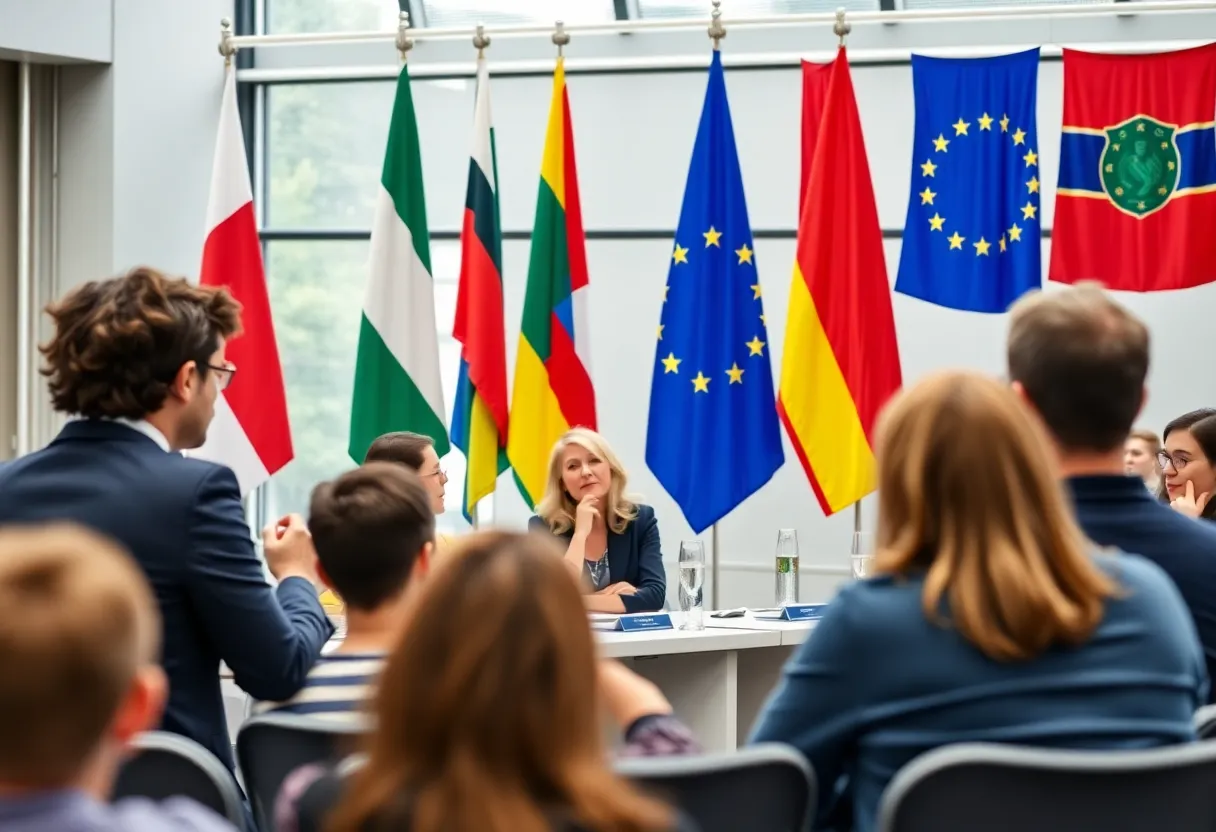News Summary
A panel discussion at the 34th Bálványos Summer Free University addressed the crucial issue of EU centralization vs. member state sovereignty. Key speakers, including Hungary’s Minister for EU Affairs and a prominent historian, emphasized the diverse challenges and needs of EU member states. They discussed the balance between centralized decision-making and national autonomy, while also exploring the implications of rising public dissatisfaction with EU governance. The dialogue revealed differing perspectives on the future of EU relationships and the complexities of addressing unique national interests.
Panel Discussion at Bálványos Summer Free University Sheds Light on EU Centralization vs. Sovereignty
This week, a lively panel discussion took place at the 34th Bálványos Summer Free University, drawing attention to a pressing issue: the future direction of the European Union (EU). This important conversation featured prominent speakers, including Hungary’s Minister for EU Affairs, János Bóka, American author Rod Dreher, Member of the European Parliament (MEP) Lóránt Vincze, and historian Miklós Bakk.
Centralization vs. Member State Sovereignty
The main topic revolved around the ongoing tension between establishing a more centralized decision-making structure under the European Commission and ensuring that the sovereignty of individual member states is respected. It’s a delicate balance—one that’s increasingly important given the complex political landscape of today.
Lóránt Vincze pointed out a crucial fact: there truly is no **one-size-fits-all** solution when it comes to the diverse needs of the EU’s member countries. He highlighted that for Transylvanian Hungarians, increased federalization would offer more benefits than simply returning powers back to Romania. It’s an interesting perspective that underscores the unique situations faced by different groups within the EU.
Who’s in Charge?
János Bóka raised some thought-provoking questions about who really gets to steer the ship of EU cooperation. Is it the European Commission or do the member states hold that authority? His remarks on Hungary’s veto regarding Ukraine’s EU accession made waves, providing an example of how member states can stand firm against the prevailing majority of EU decisions. Bóka voiced a growing sentiment among citizens that, unfortunately, many EU decisions just don’t resonate with their day-to-day realities.
Moreover, his critique of the Court of Justice of the European Union suggests that there’s a disconnect between the ambitions of EU integration and the actual wishes of the member states. This couldn’t be more relevant in a society where citizens are increasingly aware of and concerned about how decisions made at the EU level directly impact their lives.
An American Perspective on EU Dynamics
Adding an interesting twist to the discussion was Rod Dreher, who brought a distinctly American viewpoint to the table. While he expressed the need for a strong Europe, he also critiqued the EU’s tendency to step back from sovereignty. He pointed out that the rising public dissatisfaction can often be traced back to member states not adequately addressing significant issues like mass migration, which has real consequences for the populace.
Dreher suggested that the actions of EU elites could be seen as “suicidal” in promoting policies that lead to unrest, particularly in Western European nations. His solution? A call for a reduction in the powers of Brussels and a recommitment to member state authority, encouraging a collaboration among patriotic forces across nations.
The Complexity of EU Relationships
Historian Miklós Bakk provided additional insights, drawing attention to the variety of ideologies within both the sovereigntist and federalist camps. He noted that figures like Viktor Orbán and George Simion hold differing views on the path forward, highlighting the intricate web of beliefs that exists within the EU. Bakk made an interesting prediction about a potential “two-speed Europe,” where Western EU members might opt for a more centralized structure while Eastern members advocate for decentralization.
Vincze firmly criticized the EU’s pursuit of centralization, claiming that it undermines the autonomy and effectiveness of national governments. He characterized the current leadership of the European Commission, especially under Ursula von der Leyen, as overly centralized, which may not align with the diverse requirements of member states.
Conclusion: Navigating the Future
The panel highlighted the diverse challenges that EU member states face as they navigate complex relationships with both the Commission and each other. As the discussion showcased, the future of the EU is not only about governance but also about understanding and respecting the unique experiences and needs of its member states. In a union built on diversity, finding common ground will be essential moving forward.
Deeper Dive: News & Info About This Topic
- Hungarian Conservative: EU Centralization vs. Sovereignty
- Euronews: Israel and Palestine in Brussels Meeting
- DW: EU, Israel, and Gaza War Aid
- Wikipedia: European Union
- Google Search: EU sovereignty and centralization

Author: STAFF HERE ORLANDO WRITER
ORLANDO STAFF WRITER The ORLANDO STAFF WRITER represents the experienced team at HEREOrlando.com, your go-to source for actionable local news and information in Orlando, Orange County, and beyond. Specializing in "news you can use," we cover essential topics like product reviews for personal and business needs, local business directories, politics, real estate trends, neighborhood insights, and state news affecting the area—with deep expertise drawn from years of dedicated reporting and strong community input, including local press releases and business updates. We deliver top reporting on high-value events such as Orlando International Fringe Theatre Festival, Megacon Orlando, and Central Florida Fair. Our coverage extends to key organizations like the Orlando Economic Partnership and Hispanic Chamber of Commerce Metro Orlando, plus leading businesses in leisure and hospitality that power the local economy such as Walt Disney World Resort, AdventHealth, and Universal Orlando. As part of the broader HERE network, including HEREJacksonville.com, HEREPetersburg.com, HERETallahassee.com, and HERETampa.com, we provide comprehensive, credible insights into Florida's dynamic landscape.





